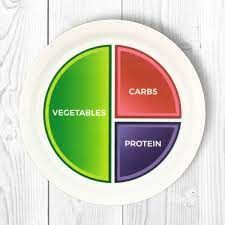Weight Loss Vs Fat Loss
Understanding the Difference Between Weight Loss and Fat Loss
When it comes to achieving a healthier body, the terms "weight loss" and "fat loss" are often used interchangeably. However, they refer to different processes with distinct impacts on your body and overall health. Understanding these differences is crucial for setting realistic goals and choosing the right methods to achieve them.
What is Weight Loss?
Weight loss refers to a reduction in your overall body weight. This includes the loss of muscle, fat, and water weight. When you step on a scale, the number you see reflects the total weight of your body, encompassing all these components. People often focus on weight loss because it is easy to measure and track.
How Weight Loss Occurs:
- Diet: Consuming fewer calories than you burn.
- Exercise: Burning calories through physical activity.
- Dehydration: Loss of water weight through sweating or diuretics.
- Illness: Certain illnesses can lead to unintended weight loss.
While weight loss can be a sign of improved health, it is not always the case. Losing weight without considering the composition of that weight loss can sometimes lead to undesirable outcomes, such as muscle loss or dehydration.
What is Fat Loss?
Fat loss, on the other hand, specifically targets the reduction of body fat while preserving lean muscle mass. Fat loss is a more precise and healthier goal because it focuses on decreasing the excess fat that can contribute to various health problems.
How Fat Loss Occurs:
- Balanced Diet: Consuming a nutritious diet that supports fat loss while maintaining muscle.
- Strength Training: Building and preserving muscle through resistance exercises.
- Cardio: Engaging in aerobic exercises to burn calories and fat.
- Caloric Deficit: Creating a sustainable caloric deficit to promote fat loss.
Fat loss is measured using methods that assess body composition, such as body fat calipers, DEXA scans, or bioelectrical impedance scales. These methods provide a more accurate picture of changes in body fat percentage, rather than just overall weight.
Key Differences
Health Implications:
Fat loss is generally healthier and more sustainable than weight loss. Reducing excess fat while maintaining or building muscle can improve your overall body composition, metabolism, and health. Weight loss that includes muscle loss can lead to a slower metabolism and potential health issues.
Appearance and Functionality:
Fat loss often results in a more toned and defined appearance, as well as improved physical performance. Losing muscle along with fat, as can happen with general weight loss, may not give you the desired body shape and can affect your strength and energy levels.
Sustainability:
Fat loss achieved through a balanced diet and regular exercise is typically more sustainable. Rapid weight loss methods, such as extreme diets or dehydration, can lead to temporary results and potential health risks.
Conclusion
In summary, while both weight loss and fat loss involve a reduction in body weight, fat loss is a more targeted and beneficial approach. Focusing on fat loss through healthy eating, strength training, and cardiovascular exercise can lead to better health outcomes, a more toned appearance, and sustainable results. Understanding the difference between these two concepts can help you set more effective and realistic goals on your journey to a healthier body. Want to know more? Join us July 20th 2024 at Fitness 360 for our Seminar. Call 727-797-5100 to reserve your place today!













